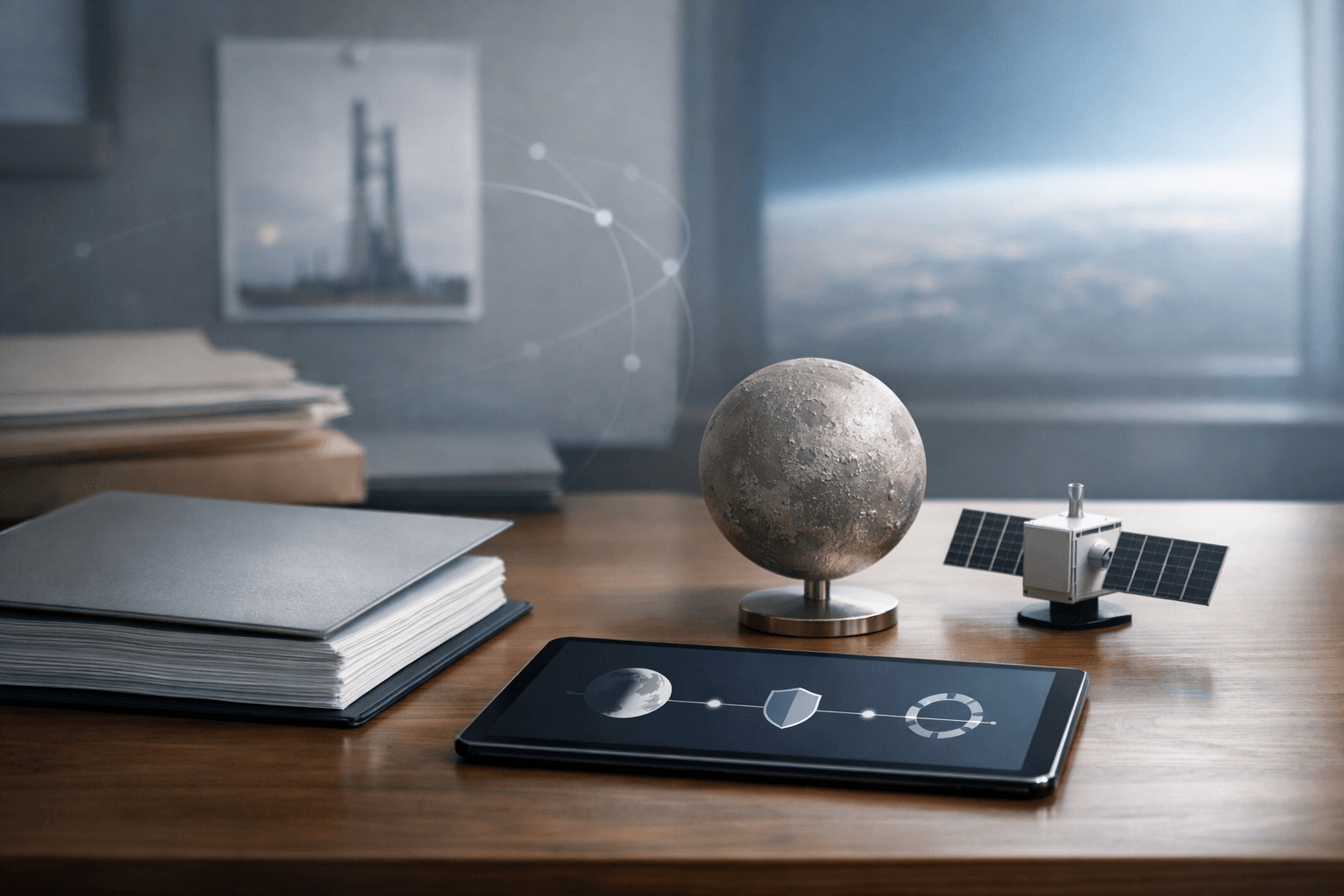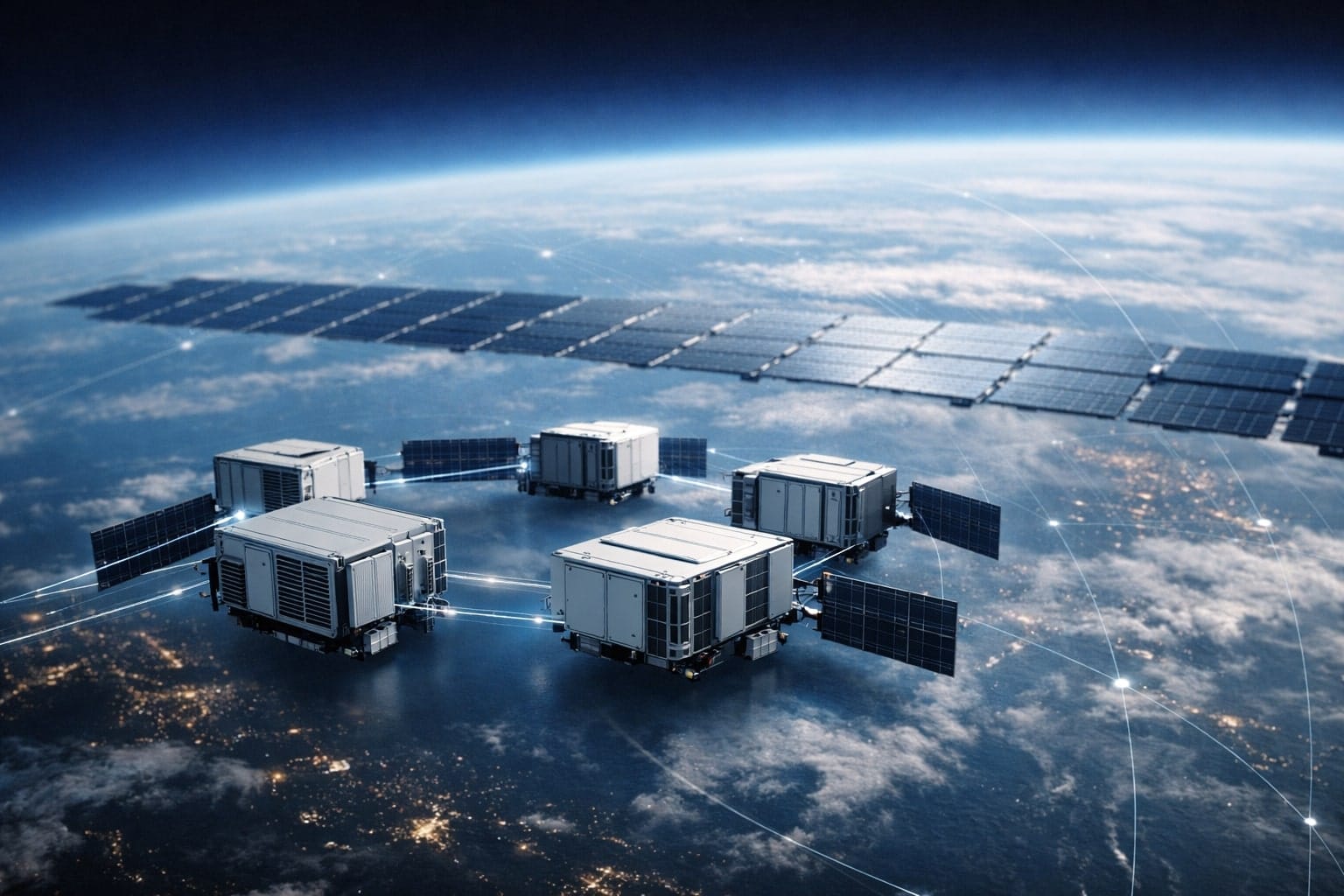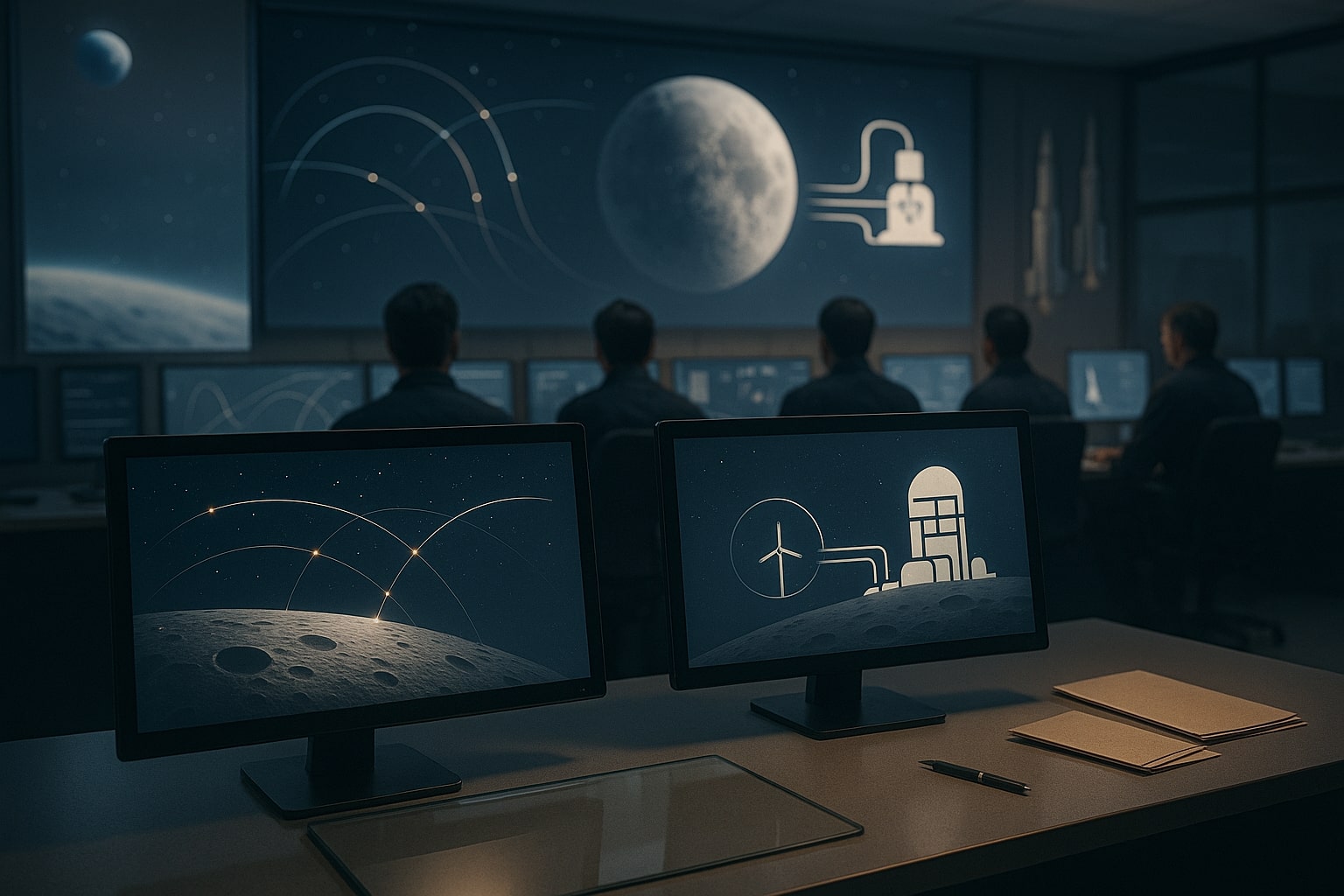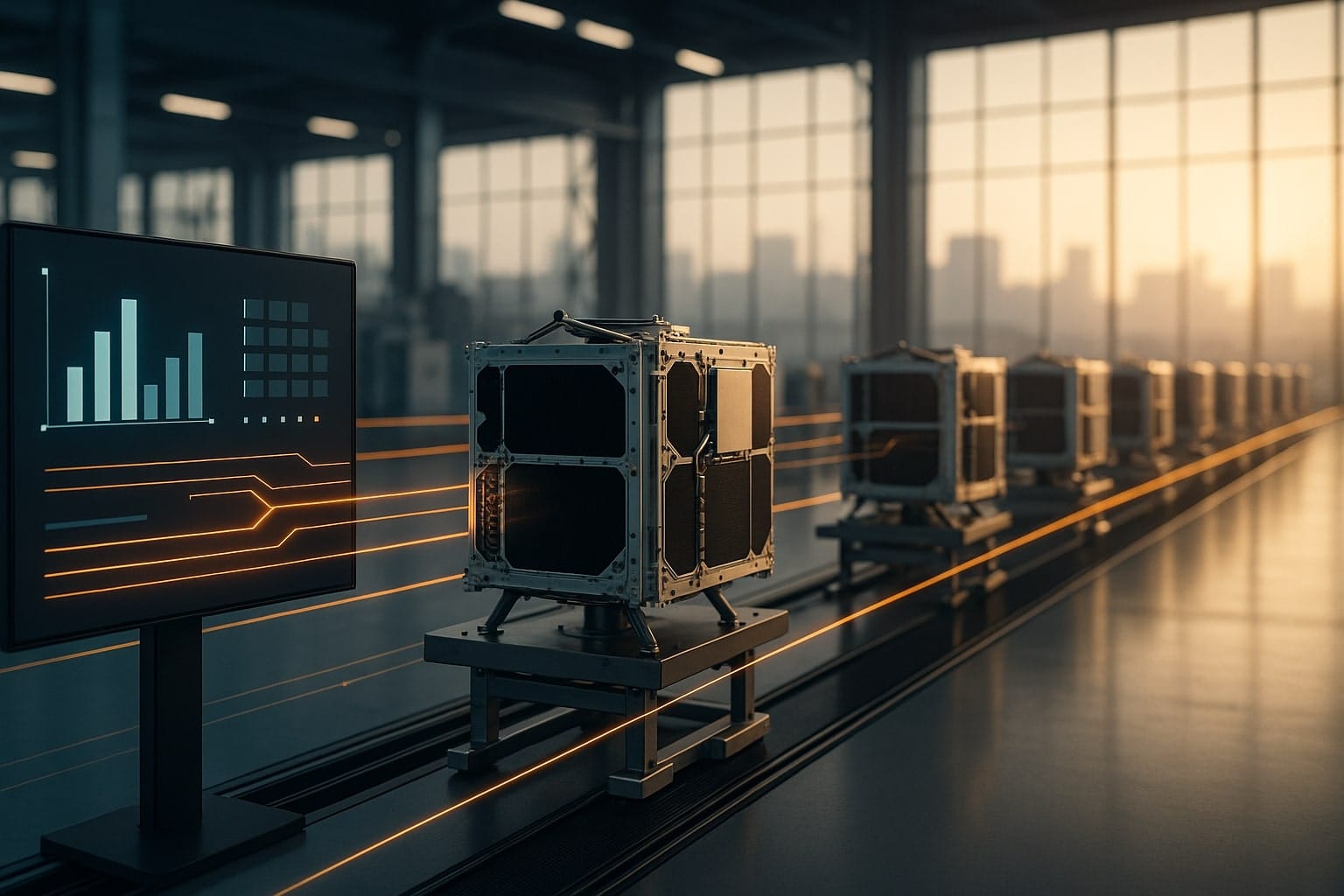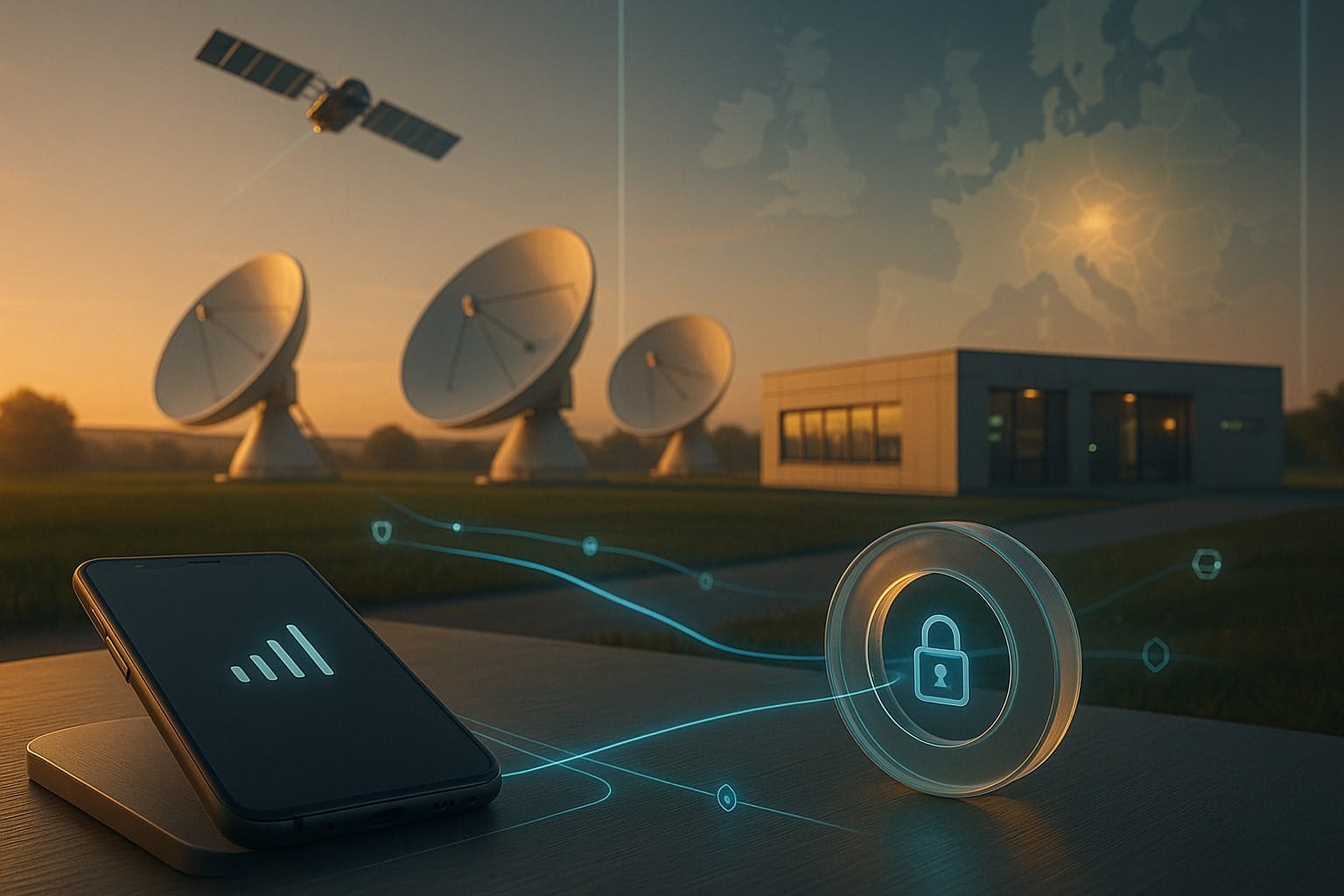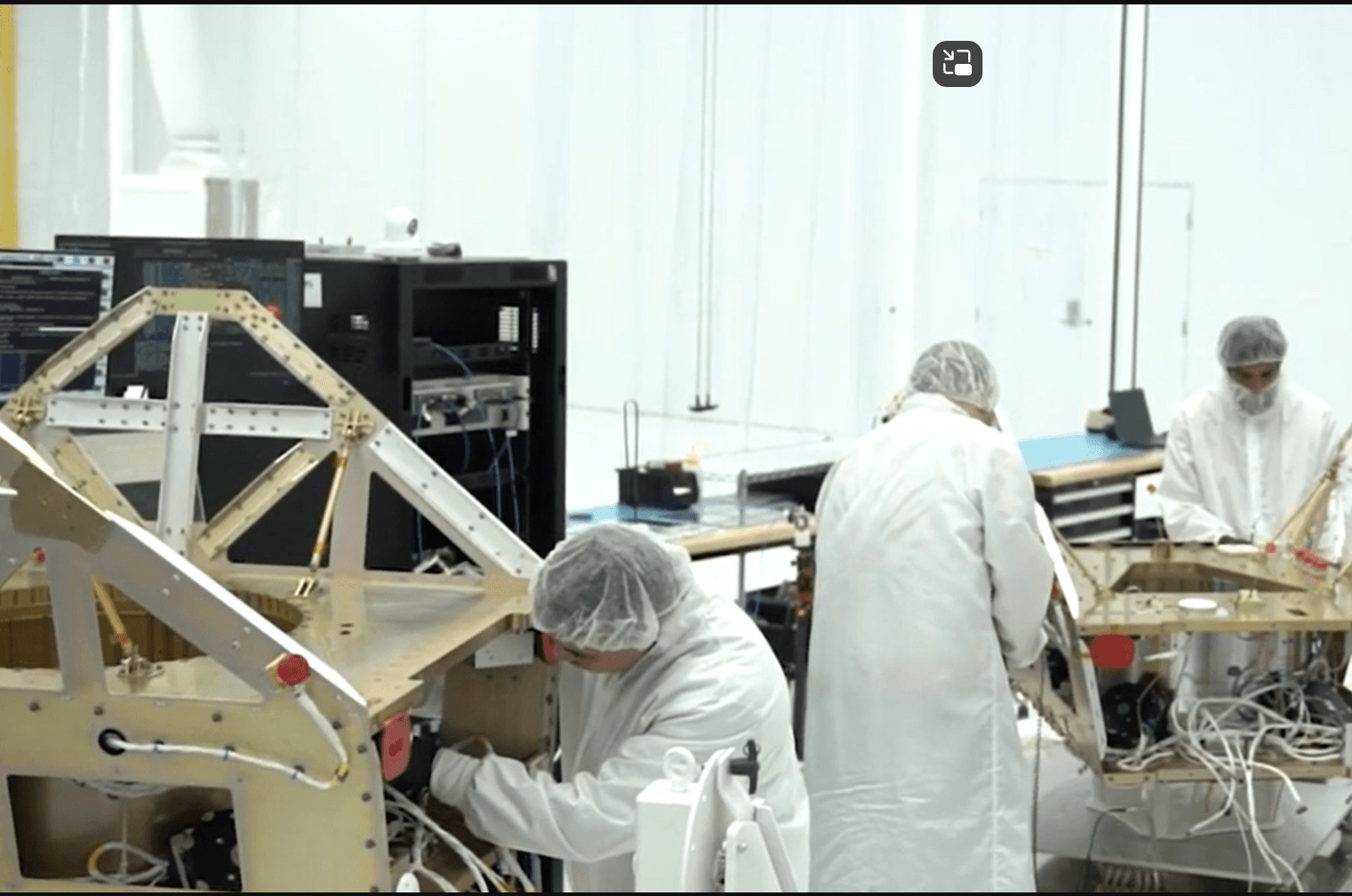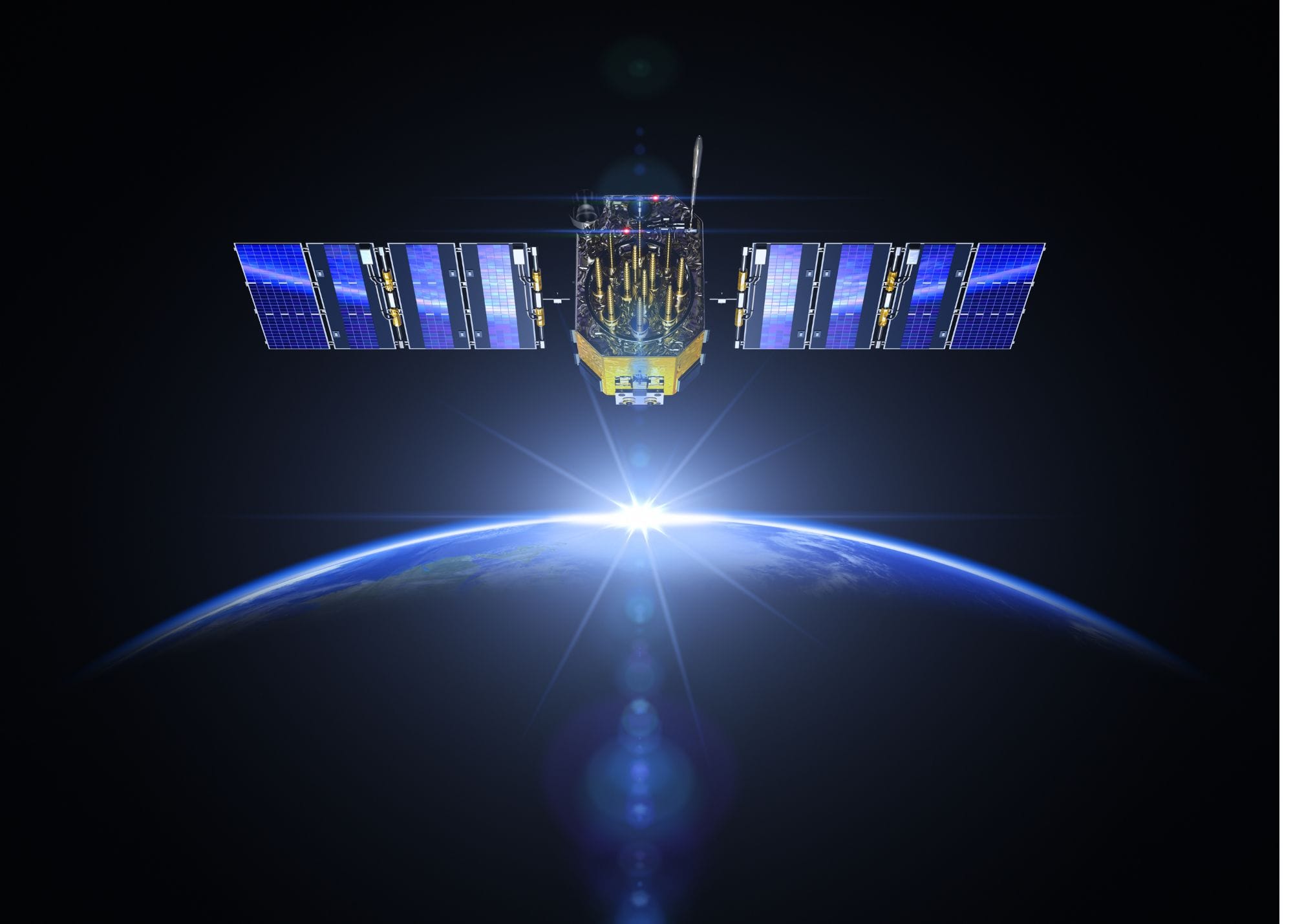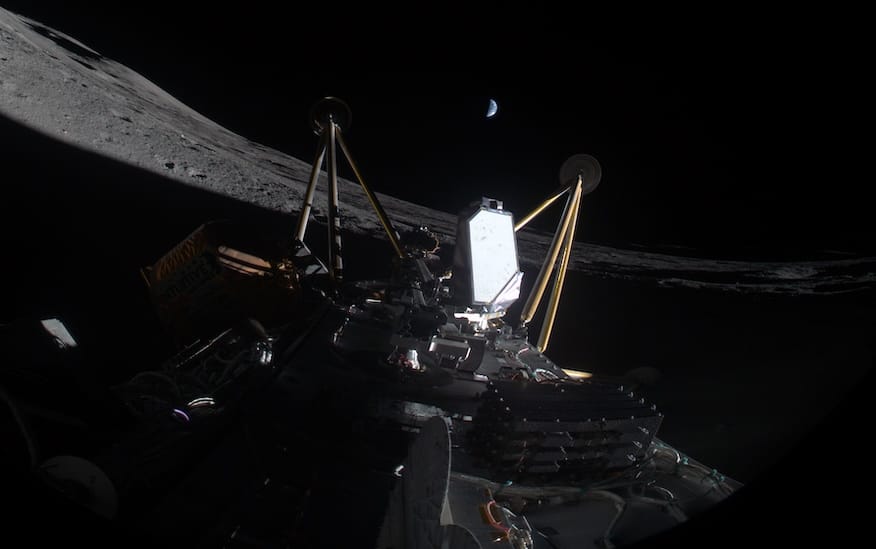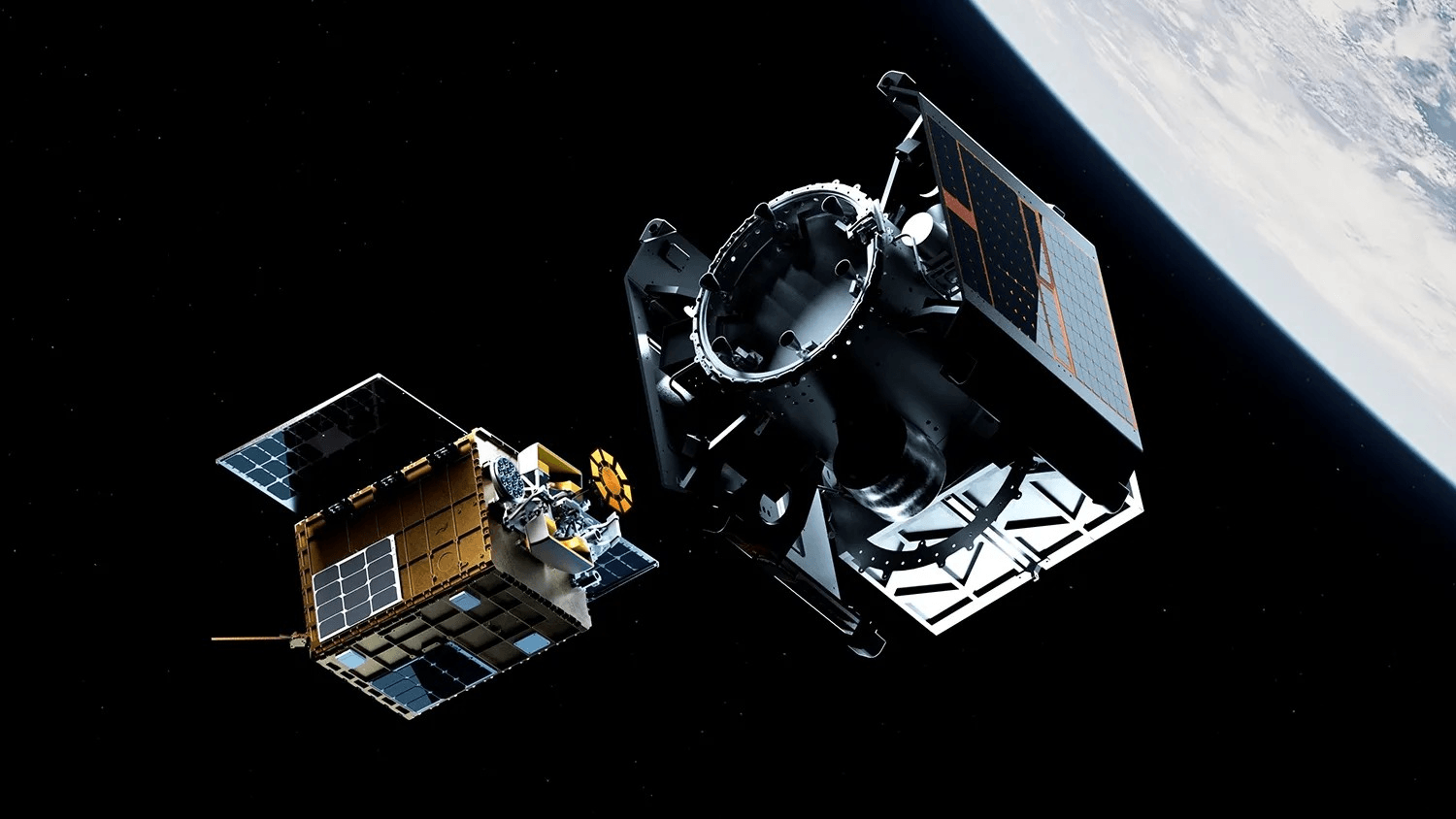ispace-EUROPE S.A., a Luxembourg-based lunar exploration company, has achieved a significant milestone by obtaining the first-ever mission authorization under Luxembourg’s 2017 Space Resources Law. This authorization permits the operation of their TENACIOUS Micro Rover during the upcoming Mission 2, scheduled for launch on January 15, 2025.
This development underscores Luxembourg’s commitment to fostering innovation in the space economy and positions ispace-EUROPE at the forefront of commercial lunar exploration.
Table of Contents
ToggleBackground
About ispace-EUROPE
ispace-EUROPE S.A. is a subsidiary of ispace, inc., a private lunar exploration company with a vision to expand the Earth’s economy into space by utilizing lunar resources. Established in Luxembourg, ispace-EUROPE focuses on developing technologies and missions aimed at prospecting and utilizing lunar resources to support sustainable human presence on the Moon.
Luxembourg’s Space Resources Law
In 2017, Luxembourg enacted the Law on the Exploration and Use of Space Resources, becoming the first European nation to establish a legal framework recognizing that space resources can be owned.
This legislation requires entities to obtain authorization from the Ministry of the Economy before engaging in the exploration or utilization of space resources, ensuring activities are conducted responsibly and in accordance with international obligations.
Global Context
The global space industry is rapidly evolving, with increasing interest in the commercialization of space resources. Luxembourg has positioned itself as a pioneer in this sector, attracting companies worldwide by offering a supportive legal and regulatory environment. The authorization granted to ispace-EUROPE marks a significant step in operationalizing the ambitions set forth in Luxembourg’s space resources strategy.
Details of the Authorization
The Luxembourg Ministry of the Economy has granted ispace-EUROPE a mission authorization to operate the TENACIOUS Micro Rover on the lunar surface during Mission 2. This authorization permits the rover to execute key operations, including the collection and transfer of ownership of lunar regolith, facilitating the execution of a 2020 regolith contract signed with NASA.
This approval not only enables ispace-EUROPE to proceed with its mission objectives but also sets a precedent for future commercial space resource activities within Europe. It reflects Luxembourg’s dedication to fostering a robust space economy by providing a clear legal pathway for the exploration and utilization of space resources.
The TENACIOUS Micro Rover and Mission 2
Technical Specifications of the TENACIOUS Micro Rover
The TENACIOUS Micro Rover, developed by ispace-EUROPE, is a compact lunar exploration vehicle with the following specifications:
- Dimensions: 26 cm in height, 31.5 cm in width, and 54 cm in length.
- Weight: Approximately 5 kg.
- Features: Equipped with a forward-mounted HD camera for capturing high-resolution images of the lunar surface and a shovel for regolith collection.
- Deployment: Designed to be deployed from the RESILIENCE lunar lander onto the Moon’s surface, where it will conduct self-propelled exploration activities.
- Development: Assembled and tested in Luxembourg, marking a significant achievement in European space engineering.
Mission 2 Objectives and Launch Schedule
Mission 2, part of ispace’s HAKUTO-R program, is scheduled to launch on January 15, 2025, at 06:11 UTC, utilizing a SpaceX Falcon 9 rocket.
The mission’s primary objectives include:
- Lunar Landing: Achieving a soft landing near the Mare Frigoris (Sea of Cold) in the Moon’s northern hemisphere.
- Rover Deployment: Deploying the TENACIOUS Micro Rover to conduct surface exploration and regolith collection.
- Data Collection: Gathering scientific data to support future lunar resource utilization and exploration missions.
- Technology Demonstration: Validating technologies for navigation, communication, and resource extraction on the lunar surface.
The RESILIENCE lunar lander, measuring 2.5 meters in width, 2.3 meters in height, and weighing approximately 340 kg, will transport the TENACIOUS rover and other payloads to the lunar surface.
Role of the TENACIOUS Micro Rover in Lunar Exploration
Upon deployment, the TENACIOUS Micro Rover will:
- Surface Exploration: Traverse the lunar terrain to assess geological features and identify potential resources.
- Regolith Collection: Utilize its shovel to collect lunar soil samples, contributing to research on in-situ resource utilization (ISRU).
- Data Transmission: Relay collected data back to the RESILIENCE lander, which will then transmit the information to mission control on Earth.
This mission aims to demonstrate the feasibility of using small, agile rovers for lunar exploration and resource assessment, paving the way for future commercial activities on the Moon.
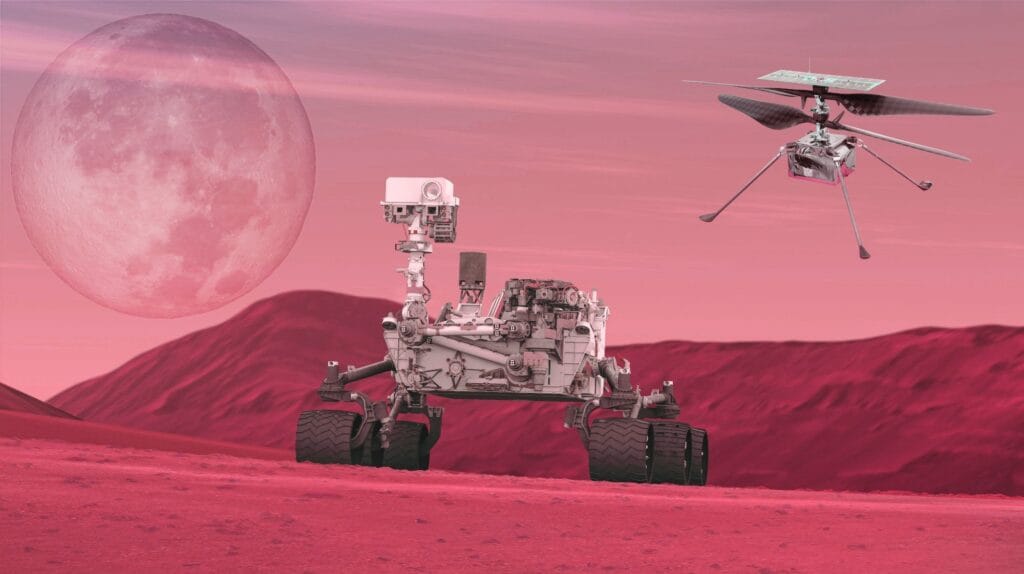
Significance of the Milestone
For ispace-EUROPE
Securing mission authorization under Luxembourg’s Space Resources Law positions ispace-EUROPE as a pioneer in commercial lunar exploration.
This achievement enhances the company’s credibility and showcases its capability to develop and deploy advanced space technologies, such as the TENACIOUS Micro Rover.
It also strengthens ispace-EUROPE’s role in the global space industry, attracting potential partnerships and investment opportunities.
For Luxembourg
This milestone reinforces Luxembourg’s status as a leading nation in the space sector, particularly in the realm of space resource utilization.
The successful implementation of its Space Resources Law demonstrates the country’s commitment to creating a supportive legal and regulatory environment for space exploration companies.
It also highlights Luxembourg’s strategic vision to diversify its economy by investing in high-tech industries and fostering innovation.
For the Global Space Industry
The authorization granted to ispace-EUROPE sets a precedent for private-sector involvement in space exploration and resource utilization.
It exemplifies how clear legal frameworks can facilitate commercial activities beyond Earth, encouraging other nations to develop similar policies.
This development contributes to the broader movement towards the commercialization of space, potentially leading to new markets and economic opportunities in the cislunar economy.
Expert Opinions
Julien Lamamy, CEO of ispace-EUROPE
Julien Lamamy expressed that obtaining the mission authorization is a significant achievement for the company, enabling them to proceed with their lunar exploration objectives.
He emphasized that this milestone reflects the dedication and expertise of the ispace-EUROPE team and their commitment to advancing lunar exploration technologies.
Lex Delles, Luxembourg’s Minister of the Economy
Minister Lex Delles highlighted that granting the mission authorization to ispace-EUROPE demonstrates Luxembourg’s proactive approach in supporting innovative space ventures.
He stated that this development aligns with the nation’s strategy to position itself as a hub for the space industry and to contribute to the global advancement of space exploration.
Industry Perspectives
Experts in the space industry view this authorization as a pivotal moment that could accelerate the involvement of private companies in lunar exploration.
They note that such regulatory approvals are crucial for the development of a sustainable space economy and for fostering international collaboration in space resource utilization.
Challenges and Future Outlook
Technical and Operational Challenges
ispace-EUROPE’s Mission 2 faces several technical and operational challenges:
- Landing Precision: Achieving a soft landing on the lunar surface requires precise navigation and control. ispace’s previous attempt in April 2023 ended unsuccessfully due to an altitude miscalculation during the final descent. Lessons learned from that mission have been integrated into Mission 2 to enhance landing accuracy.
- Rover Deployment and Mobility: Deploying the TENACIOUS Micro Rover from the RESILIENCE lander and ensuring its mobility on the Moon’s rugged terrain present significant engineering challenges. The rover’s design has been optimized to navigate and operate effectively in the harsh lunar environment.
- Communication and Data Transmission: Maintaining reliable communication between the rover, lander, and Earth-based mission control is crucial for mission success. The mission team has developed robust communication protocols to address potential signal disruptions.
Legal and Ethical Considerations
The mission also navigates complex legal and ethical landscapes:
- Resource Ownership and Utilization: While Luxembourg’s Space Resources Law provides a legal framework for resource ownership, international consensus on space resource utilization is still evolving. ispace-EUROPE’s activities may influence future international policies and agreements.
- Environmental Impact: Conducting activities on the lunar surface raises concerns about potential contamination and the preservation of the Moon’s natural state. The mission adheres to international guidelines to minimize environmental impact.
Future Outlook
Despite these challenges, the future of ispace-EUROPE and lunar exploration appears promising:
- Advancements in Technology: Success in Mission 2 would demonstrate significant technological progress, paving the way for more complex missions, including resource extraction and utilization.
- Commercial Opportunities: The mission could open new commercial avenues, such as lunar mining and the development of a cislunar economy. Notably, there is growing interest in extracting Helium-3 from the Moon, a potential fuel for future clean energy sources.
- International Collaboration: ispace-EUROPE’s endeavors may foster increased international collaboration in space exploration, contributing to a more unified approach to utilizing extraterrestrial resources.
Conclusion
ispace-EUROPE’s secured mission authorization under Luxembourg’s Space Resources Law marks a significant milestone in commercial lunar exploration. The upcoming Mission 2, featuring the deployment of the TENACIOUS Micro Rover, embodies the convergence of technological innovation, legal foresight, and entrepreneurial spirit. While challenges persist, the mission’s success could herald a new era in space resource utilization, positioning ispace-EUROPE and Luxembourg at the forefront of the burgeoning space economy.

